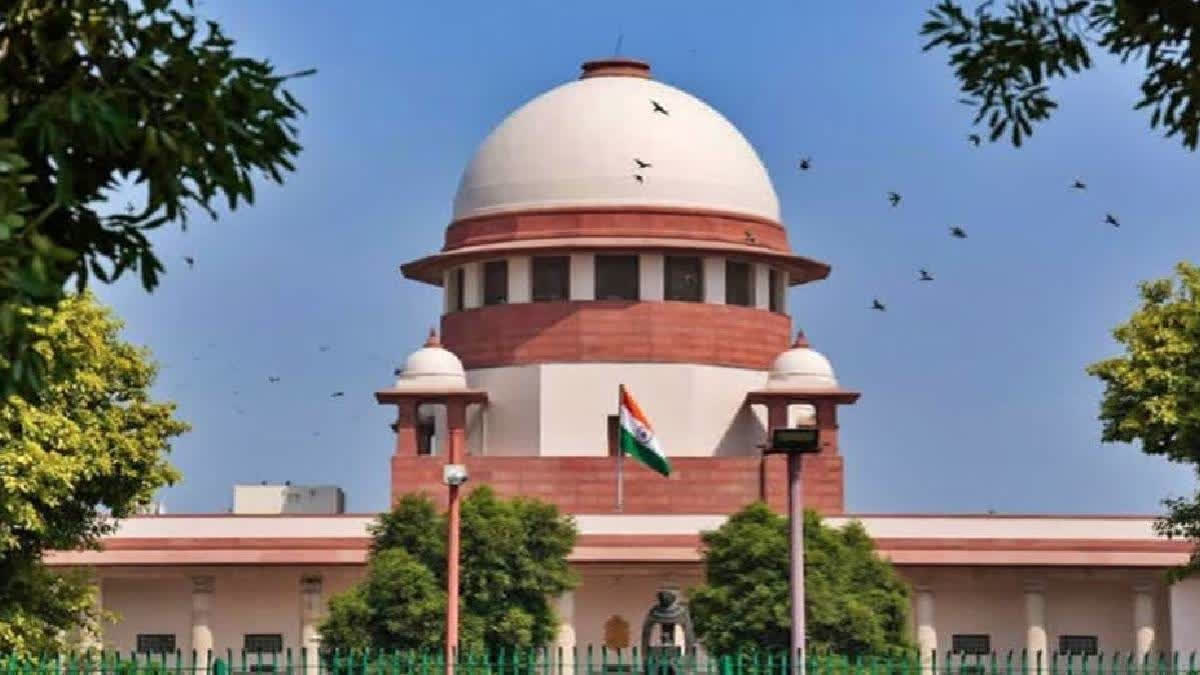New Delhi: The Supreme Court has said that the daughter has a fundamental right to pursue her education, for which the parents could be compelled to provide necessary funds within the limit of their financial resources.
A bench comprising Justices Surya Kant and Ujjal Bhuyan said it is of the view that the daughter of an estranged couple, who were living separately for the last 26 years, was entitled to Rs 43 Lakh, in law. "She, being the daughter, has an indefeasible, legally enforceable, lawful, and legitimate right to secure educational expenses from her parents," said the bench, in an order passed on January 2.
The bench added, " that we observe is that the daughter has a fundamental right to pursue her education, for which the parents could be compelled to provide necessary funds within the limit of their financial resources."
The bench noted that the daughter of the parties is presently studying in Ireland, and she, in order to maintain her own dignity, has declined to retain the amount of Rs.43 Lakhs spent on her education by her father. The bench said it seems that the daughter insisted on refunding that amount to her father, however, the father had declined to accept this amount.
The bench said the amount has been spent by the father without any compelling reasons, and it shows that he was financially sound to the extent of providing financial assistance to his daughter for her academic pursuits. "Respondent No.2 (daughter) has, thus, got a right to retain that amount. She need not, therefore, return that amount either to the appellant or to respondent No.1, and may suitably appropriate it as she may deem fit," said the bench.
The apex court made these observations in a matrimonial dispute in which the daughter of the estranged couple refused to accept Rs 43 lakh given by her father for her studies, as a part of the total alimony being paid to her mother.
The bench cited the settlement agreement entered into by the estranged couple in November, last year, which was also signed by the daughter.
The bench noted that as per the settlement agreement, the husband has agreed to pay a sum of Rs 73 Lakh to his estranged wife and daughter– Rs 43 Lakh was meant for the daughter’s education, and the remaining amount for the wife.
Counsel for the parties jointly state that the first part of Rs.30 Lakh has been paid by the husband to his estranged wife. It said the sum spent by the father on the education of their daughter, was to be adjusted towards the lump sum alimony/maintenance payable to the wife and their daughter, noted the bench.
Noting that parties have been living separately for the last 26 years, the bench said, “As regards the appellant, since she has already received the agreed amount of Rs.30 Lakhs, and the parties are admittedly living separately for the last 26 years, we see no reason not to entertain their prayer for grant of a decree of divorce by mutual consent. Consequently, we invoke our powers under Article 142 of the Constitution and dissolve the marriage of the parties by granting a decree of divorce by mutual consent".
The bench said as a result of the settlement agreement, the parties shall not pursue any court case against each other and if any case is pending before any forum, the same shall stand disposed of in terms of the settlement agreement. The bench said parties shall have no claim against each other in future and they shall abide by the terms and conditions of the settlement agreement, which shall form part of this order.



